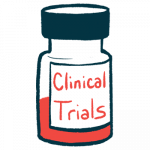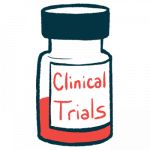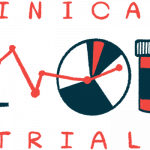AEV103 (3,6’-dithiopomalidomide), a potentially immunomodulating medicine, was able to quell brain inflammation and slow cognitive decline in a mouse model of Alzheimer’s disease, a study has found. The medicine, developed originally at the National Institutes of Health (NIH) and now licensed to AevisBio, exerted its effects even in the absence of any change in the…
Conditions
Conditions
Patients Have Higher COVID-19 Risk Even if Fully Vaccinated: US Study
Even if they’re fully vaccinated, multiple myeloma patients still have an increased risk of COVID-19 infection compared with people without cancer, according to a study looking at data from more than 500,000 individuals in the U.S. Called breakthrough infections, these post-vaccination illnesses from SARS-CoV-2 — the virus that causes COVID-19 — also were associated with…
Amyloid, Tau Levels Continuing to Fall With Aduhelm’s Long-term Use
Aduhelm (aducanumab) continues to clear away amyloid plaques and tangled fibers made up of tau — two abnormal protein aggregates that build in the brain of those with Alzheimer’s disease — after nearly two and a half years of treatment, Biogen, which markets the treatment, reports. It also announced plans to begin patient screening for ENVISION,…
Trial Data Further Support Gingipain Suppression as Potential Therapy
Atuzaginstat (COR388), Cortexyme’s investigational oral therapy, effectively suppressed the activity of its target — toxic enzymes called gingipains — and was associated with reductions in several disease biomarkers in people with mild-to-moderate Alzheimer’s, according to updated data from the Phase 2/3 GAIN clinical trial. Similar to previously reported findings, these benefits were most pronounced among patients…
Dual Vaccine Shows Promise for Treating Alzheimer’s in Early Study
A dual vaccine targeting both amyloid plaques and tangled fibers made up of tau — two abnormal protein aggregates that build up in the brain of those with Alzheimer’s — may have potential to treat and prevent the disease. Prothena, its developer, has found preclinical evidence that the vaccine drives the generation of a sufficient…
Adults, Doctors in US Struggle to Tie Cognitive Problems to Alzheimer’s
Most adults in the U.S., as well as many doctors, have difficulty distinguishing between the early stages of Alzheimer’s disease and cognitive changes due to normal aging, according to the latest annual report from the Alzheimer’s Association. The report draws on responses to surveys, one of adult Americans and another of primary care physicians in the…
Prothena’s PRX012 Trial Begins Dosing Patients, Healthy Volunteers
Prothena has begun testing single ascending doses (SAD) of PRX012, its investigational anti-amyloid beta antibody therapy, in a Phase 1 clinical trial with healthy volunteers and people with Alzheimer’s disease. This follows the recent approval of the company’s investigational new drug (IND) application for PRX012 by the U.S. Food and Drug Administration. A next-generation antibody,…
Longer Survival for Black vs White Myeloma Patients With Same Care
Black people with multiple myeloma live longer than white patients with similar disease symptoms when both receive the same new and updated medical treatments, according to an analysis of the Surveillance, Epidemiology, and End Results (SEER) database. However, Black myeloma patients were less likely to receive such novel treatments than white individuals — even when…
Biogen Submits Final Protocol for Phase 4 Aduhelm Study to FDA
Biogen, the co-developer of Aduhelm (aducanumab) has submitted the final protocol for ENVISION — the Phase 4 post-marketing study of the therapy in early Alzheimer’s disease — to the U.S. Food and Drug Administration (FDA) for review and approval, the company has announced. Screening of the first patient is expected in May, according to Biogen’s press…
Europe’s CHMP Supports Carvykti T-cell Therapy Approval in EU
Carvykti (ciltacabtagene autoleucel; cilta-cel) has been recommended for approval in Europe by the Committee for Medicinal Products for Human Use (CHMP), an arm of the European Medicines Agency (EMA), for eligible adults with relapsed and refractory multiple myeloma. The CAR T-cell therapy will be available for patients who have received at least three prior lines of…
#AAN2022 – SAGE-718 May Help With Cognitive Function in Alzheimer’s
Treatment with the investigational candidate SAGE-718 was generally well-tolerated and associated with cognitive improvements in people with Alzheimer’s disease, according to preliminary results from the LUMINARY Phase 2 clinical trial. The therapy’s developer, Sage Therapeutics, presented these findings in a talk, titled “SAGE-718 in Patients With Mild Cognitive Impairment or Mild Dementia Due to Alzheimer’s…
AL001 May Deliver Lithium’s Benefits for Dementia With Less Toxicity
Alzamend Neuro’s experimental oral therapy for dementia related to Alzheimer’s disease may deliver the benefits of marketed lithium-based treatments but with fewer side effects, data from a completed Phase 1 trial show. A 150 milligrams (mg) dose of the therapy, called AL001, led to similar levels of lithium in the blood as a 300 mg…













